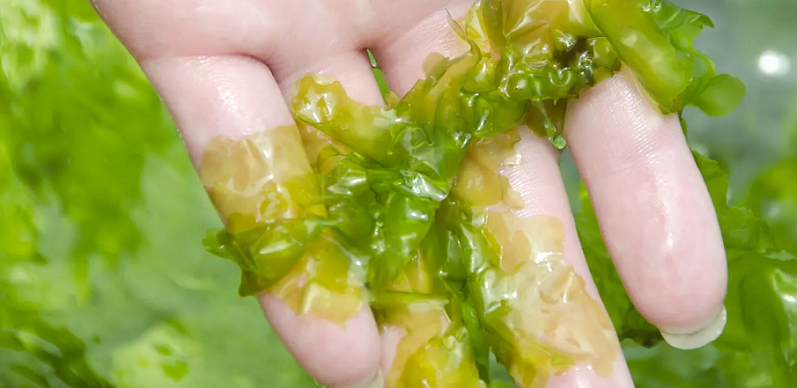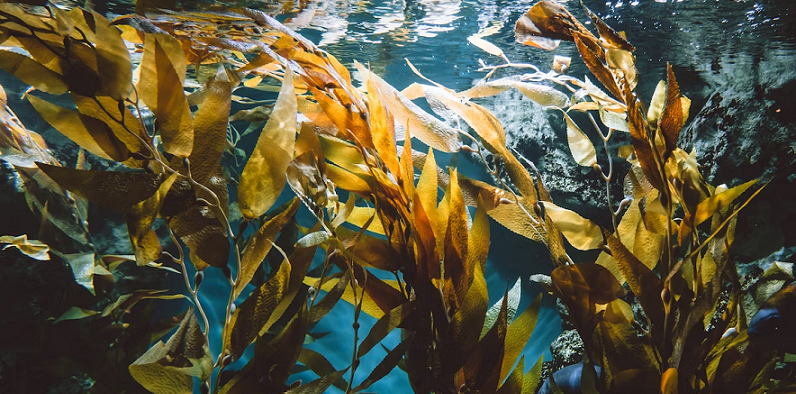
There exists a fascinating world of ocean-derived components that are revolutionizing our approach to skin health and beauty. While algae and seaweed have long been celebrated for their skin benefits, there is a vast, often uncharted territory of marine ingredients offering unique and potent properties. Here we uncover some lesser-known marine ingredients, diving into their scientific backgrounds, benefits, and the innovative ways they’re being harnessed in skincare.
Contents
Introduction to Marine Ingredients and Skincare
The beauty industry has long tapped into the ocean’s bounty, harnessing ingredients like algae and seaweed for their remarkable skin benefits. However, the ocean, with its vast and diverse ecosystem, offers much more than these well-known ingredients. In recent years, there’s been a burgeoning interest in marine ingredients. Consumers and skincare formulators alike are drawn to the ocean’s diverse array of organisms, each harboring unique compounds beneficial for skin health. This trend is not just about novelty; it’s grounded in the understanding that marine environments, with their extreme conditions, have led to the evolution of robust, potent compounds.
Explanation of the Growing Interest in Marine Ingredients for Skincare
The skincare industry is always in pursuit of the next breakthrough ingredient, and the ocean is a largely untapped source brimming with potential. The growing interest in marine ingredients is fueled by a combination of factors. Firstly, there’s a global shift towards natural and organic products. Consumers are increasingly aware of what they apply to their skin, seeking ingredients with minimal processing and a clear origin.
Secondly, the unique conditions of marine environments – like high salt content, intense pressure, and varying temperatures – have resulted in marine organisms developing unique compounds to survive. These compounds are often more potent and effective than their terrestrial counterparts.
Brief Overview of Common Marine Ingredients like Algae and Seaweed
Before we venture into the lesser-known marine ingredients, let’s acknowledge the foundational role of algae and seaweed in marine-based skincare. Algae, with its rich array of types, sizes, and colors, is known for its hydrating, detoxifying, and antioxidant properties. Seaweed, a type of algae, is prized for its ability to moisturize, reduce inflammation, and provide essential vitamins and minerals to the skin. These ingredients have been the cornerstone of marine skincare, but they are just the tip of the iceberg [1].
The Science Behind Marine Ingredients in Skincare
The ocean is not just a vast body of water but a complex ecosystem that nurtures life forms with unique biological structures and chemical compositions. These marine organisms have adapted over millennia to survive in harsh environments, resulting in a rich array of bioactive compounds. Understanding these scientific principles provides a foundation for appreciating how marine ingredients benefit the skin.
Unique Properties of Marine-Based Compounds
Marine-based compounds are distinct in their composition and function due to the unique environmental conditions in which they are formed. The high salt content, intense pressure, varying temperatures, and exposure to UV radiation in marine environments have led marine organisms to develop robust protective mechanisms.
These include powerful antioxidants to combat UV damage, anti-inflammatory compounds to survive in saltwater, and hydrating molecules that help retain moisture in drying conditions. These properties make marine ingredients particularly effective in protecting, nourishing, and rejuvenating the skin.
Benefits of Marine Ingredients for Different Skin Types
Marine ingredients are not just versatile; they are also inclusive, catering to a wide range of skin types and concerns. For instance, the hydrating properties of marine ingredients like sea kelp and hyaluronic acid derived from marine bacteria are excellent for dry skin, providing deep and sustained moisture.
The anti-inflammatory effects of omega-3 fatty acids, found in fish oils and certain algae, are beneficial for sensitive and acne-prone skin, helping to reduce redness and soothe irritation. Even for aging skin, ingredients like marine collagen and elastin offer firming and smoothing benefits, addressing concerns like fine lines and loss of elasticity [2].
Comparison of Marine Ingredients with Traditional Skincare Ingredients
When compared to traditional skincare ingredients, marine-based compounds often exhibit higher potency and efficiency. For instance, antioxidants found in marine plants and algae are often more powerful than their terrestrial counterparts due to their adaptation to intense sunlight and oxidative stress in the marine environment.
Additionally, the molecular structure of some marine ingredients allows for better skin penetration and absorption, making them more effective in delivering their benefits. These comparisons not only highlight the unique strengths of marine ingredients but also underscore the importance of diversifying the sources of skincare ingredients for optimal skin health.

Unconventional Marine Ingredients and Their Skincare Benefits
While algae and seaweed are the more recognized ingredients in marine skincare, the ocean offers a plethora of other bioactive compounds that are less familiar but equally potent.
Marine Collagen: Structure and Impact on Skin Elasticity
One of the most promising marine ingredients is marine collagen. Derived primarily from fish scales and skin, marine collagen is known for its superior bioavailability compared to traditional sources of collagen. Its structure closely resembles human collagen, making it particularly effective in promoting skin elasticity and reducing the signs of aging. Marine collagen peptides are smaller and more easily absorbed by the body, leading to better synthesis of new collagen fibers in the skin. This results in firmer, more youthful-looking skin.
Omega-3 Fatty Acids: Role in Reducing Inflammation and Promoting Skin Health
Omega-3 fatty acids, commonly found in fish oil and certain marine algae, are renowned for their anti-inflammatory properties. They play a crucial role in skin health by modulating inflammatory responses, which is beneficial for conditions like acne, psoriasis, and eczema. Omega-3 fatty acids also help in maintaining the skin’s lipid barrier, essential for keeping the skin hydrated and protecting against environmental aggressors. Regular use of skincare products enriched with omega-3 can lead to visibly healthier, more resilient skin.
Marine Peptides: Mechanism and Anti-Aging Effects
Another intriguing group of marine ingredients is marine peptides, derived from various marine organisms like oysters, sea snails, and even deep-sea fish. These peptides are known for their anti-aging properties. They work by stimulating collagen production, inhibiting collagenase (the enzyme that breaks down collagen), and promoting hyaluronic acid synthesis in the skin. This multifaceted approach helps in reducing the appearance of fine lines and wrinkles, and improving skin texture and firmness [3].
Sea Silt: Nutrient-Rich and Detoxifying Properties
Sea silt, composed of mineral-rich mud and clay found at the bottom of seas and oceans, is another unique marine ingredient. It is highly valued for its detoxifying and nutrient-rich properties. Sea silt helps in drawing out impurities from the skin while infusing it with essential minerals like magnesium, zinc, and sulfur. These minerals are vital for various skin functions, including cellular regeneration and balancing oil production. Skincare products containing sea silt are especially beneficial for oily and acne-prone skin types.

Sustainable Sourcing and Environmental Impact of Marine Ingredients
As we embrace the bounty of the sea in our skincare products, it’s imperative to consider the sustainability and environmental implications of sourcing marine ingredients. The ocean is a delicate ecosystem, and responsible harvesting of its resources is crucial to ensure its health and longevity.
Challenges in Sourcing Marine Ingredients Sustainably
The primary challenge in sustainably sourcing marine ingredients is balancing the demand for these potent ingredients with the need to preserve marine biodiversity. Overharvesting poses a significant risk, potentially leading to the depletion of vital marine species and disruption of marine habitats.
Moreover, certain extraction methods can be harmful, causing environmental degradation. Therefore, it’s crucial for companies to employ sustainable harvesting practices that include regulated sourcing, using renewable marine resources, and minimizing waste and environmental impact during extraction and processing.
Impact of Overharvesting on Marine Ecosystems
Overharvesting of marine ingredients not only affects the species being targeted but can also have a cascading effect on the entire marine ecosystem. For example, the excessive harvesting of algae can disrupt local food chains and nutrient cycles, affecting a wide range of marine life. Similarly, the removal of certain marine organisms for their beneficial compounds can lead to ecological imbalances, highlighting the need for strict regulations and sustainable practices in marine sourcing [4].
Eco-friendly Practices and Certifications to Look For
To ensure that the marine ingredients in skincare products are sourced responsibly, consumers can look for certain certifications and eco-friendly practices. Certifications like the Marine Stewardship Council (MSC) and Friend of the Sea provide assurance that the products are sourced from suppliers who practice sustainable fishing and harvesting.
Additionally, brands that engage in transparent sourcing and provide detailed information about the origin of their marine ingredients are often more committed to sustainability. Choosing products from companies that invest in marine conservation and support eco-friendly initiatives can also contribute to preserving the health of our oceans.
Incorporating Marine Ingredients into Your Skincare Routine
The transition to incorporating marine ingredients into your skincare routine can be both exciting and beneficial. These ingredients offer a plethora of advantages for various skin types and concerns. However, knowing how to effectively integrate them into your existing regimen is key to maximizing their benefits.
Identifying Skincare Products with Genuine Marine Ingredients
Navigating the skincare market to find products with authentic marine ingredients can be challenging. To ensure you’re choosing genuine products, it’s essential to read ingredient labels carefully. Look for specific names of marine ingredients, such as ‘marine collagen’, ‘sea silt’, or ‘algae extract’, rather than vague terms like ‘marine extracts’.
Researching brands and their sourcing practices can also provide insights into the authenticity and quality of the ingredients used. Additionally, be wary of products with marine ingredients listed towards the end of the ingredient list, as this often indicates a lower concentration [5].
Tips for Integrating Marine-Based Products into Daily Skincare Regimens
Once you have identified genuine marine-based products, the next step is to integrate them into your daily skincare routine. Start by introducing one product at a time to observe how your skin responds. For instance, you could begin with a marine collagen serum or a moisturizer enriched with omega-3 fatty acids.
Apply these products as directed, usually after cleansing and toning but before heavier creams and oils. It’s also important to pay attention to how these ingredients interact with other products in your regimen to avoid potential irritation or diminished effectiveness.
Customization of Marine Ingredients According to Skin Type and Needs
Marine ingredients can cater to a wide range of skin types and concerns, but customization is key for optimal results. For dry or mature skin, products with hydrating ingredients like hyaluronic acid from marine bacteria or marine collagen can be particularly beneficial.
Those with oily or acne-prone skin may find products containing sea silt or algae extract more suitable, as they help regulate oil production and purify the skin. If you have sensitive skin, opt for formulations with soothing ingredients like omega-3 fatty acids. Always consider your specific skin concerns and needs when selecting marine-based skincare products, and don’t hesitate to consult a dermatologist for personalized advice.
References
[1] Luxury Skincare Brands Are Leaning More Into Marine Ingredients — Here’s Why
[2] Marine Natural Products as Innovative Cosmetic Ingredients
[3] Trends in the use of marine ingredients in anti-aging cosmetics
[4] The benefits of marine skincare – Biodiversity
[5] Marine-based skincare will give you the glowiest skin of your life
